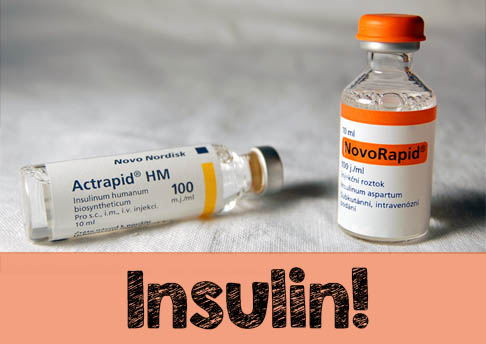
Sam contacted TheDiabetesCouncil to find out if she could be a surrogate for a couple who couldn’t have their own baby while having Type 1 diabetes.
Can she legally be a surrogate for another couple having diabetes? We didn’t know the answer to this unusual question either, so we thought it would be a good idea to investigate the surrogacy process specifically for people with diabetes or for others who may have this same question.
In this article, we will explore the possibilities of whether or not you can be a surrogate if you have diabetes. We will also look at what might happen if you are already a surrogate and you develop gestational diabetes during your pregnancy. We will look at some of the legality in brief. Understanding that we are not lawyers at thediabetescouncil.com, it’s best and always recommended to seek legal counsel when you are entering a surrogacy situation and are not sure of the process around it.
It is popular belief that people with Type 1 diabetes are unable to become surrogates. However, due to genetics and risk factors diabetes presents for the baby and mother, surrogacy contracts are done between individuals. So anything may be possible.
Let’s look at the situation a little more closely before we jump to any conclusions.
Contents
What is a surrogate?

Merriam-Webster dictionary defines a surrogate mother as, “a woman who becomes pregnant usually by artificial insemination or surgical implantation of a fertilized egg for the purpose of carrying the fetus to term for another woman.”
"Most common accepted definition is "Surrogacy refers to an arrangement whereby a woman agrees to become pregnant for the purpose of gestating and giving birth to a child for others to raise. She may be the child's genetic mother or not, depending on the type of arrangement agreed to." – Sally, Surrogacy In Canada Online
Surrogacy and gestational diabetes
When you become pregnant, you have no way of knowing for sure whether or not you will develop gestational diabetes. Most women will have some level of glucose intolerance during their pregnancy related to hormonal changes that occur. And this will cause high blood sugar levels. When the pancreas can no longer keep up with insulin demands during pregnancy, you are diagnosed with gestational diabetes as a result.
I advise reading the following:
Gestational diabetes is screened for during the second trimester; and even earlier if the woman may have had gestational diabetes during a previous pregnancy, or is at high risk. If this is your first pregnancy, you will not know if you are going to develop gestational diabetes. You will likely already be in a surrogacy contract by then. There is a four percent risk of developing gestational diabetes with each pregnancy.
Ideally, after the pregnancy is over, blood sugar levels return to normal and diabetes goes away. However, this is not always the case. Sometimes women will still have diabetes after postpartum. This occurs more often than you may realize, and half of women with gestational diabetes are more likely to develop Type 2 diabetes following the pregnancy.
Also, women can have pre-existing diabetes prior to becoming pregnant. We will look at how that might affect a surrogacy.
Gestational diabetes is not an automatic disqualification for surrogacy
You should not be automatically disqualified from becoming a surrogate if you have a history of gestational diabetes. Different states and agencies have different policies. It’s a good idea to have your doctor write a letter confirming that you are in a healthy shape to become pregnant.
In addition, you could choose to work with an individual instead of an agency when you become a surrogate. However, an individual could be more picky about your past health history, and they could decide that they do not want the risk of gestational diabetes.
Note from The Surrogacy Experience:
“Gestational diabetes is not an automatic disqualification for surrogacy I wanted to point out that it really is not the “agency” that mandates these restrictions but rather the fertility doctors. For example; we work with several fertility clinics across the nation, at two of our major clinics in the northeast they specifically have a history of Gestational Diabetes as an automatic disqualifier in their surrogacy program BUT we have fertility clinics in the south or Midwest that may view it as situational (how soon into pregnancy was it diagnosed, was she carrying multiplies, was it treated through diet or medications, etc.). Some surrogacy agencies, knowing this restriction, will automatically disqualify candidates due to this. At our agency we do a complete medical review as our first pre-screening step so we can make sure first that the carrier wouldn’t be doing anything that could affect her health. We would never want to put a woman in any health risk while they are giving this special gift. So in conclusion, this is primarily the fertility clinics restrictions, it does vary by region and working independently (not with an agency) would not change the fertility clinic’s final medical say.” – Tina Dettlaff, The Surrogacy Experience
Type 1 Diabetes cannot be a surrogate
Based on the intensive research we have conducted, we do not have good news for Sam. It is highly unlikely for a person with Type 1 diabetes to be accepted as a surrogate. Through my research, I discovered that very few women who have had gestational diabetes or pre-existing diabetes have been able to be surrogates. Furthermore, it seems to be only those who have exercised great control over their diabetes by diet and exercise, and not those taking insulin or oral hypoglycemic pills.
Note from The Surrogacy Experience:
“When it comes to GD or pre-existing diabetes, from my dealings it is very rare that a fertility clinic will medically approve a woman to move forward with surrogacy if they use insulin to control it. I can’t stress enough that even if you find intended parents who are willing to work with a carrier with this condition the ultimate say is their fertility doctor and their clinic’s rules regulations. Yes, the parents perception of diabetes in general may have them search elsewhere but from my experience it is first because they want no harm to come to the woman carrying their baby. How can they live with themselves if they knew of this condition and something horrible happened to the carrier during pregnancy. Having the entire history of the diagnosis/treatment and a letter from an endocrinologist is what a fertility clinic will want to see before they medically approve her to move forward. They may even ask the carrier to have a pre-conception visit with a Maternal Fetal Medicine professional to go over risks.”- Tina Dettlaff, The Surrogacy Experience
It’s easier to be a surrogate if you didn’t need insulin for pre-existing or gestational diabetes
Women who have had gestational diabetes, or pre-existing diabetes and whose diabetes was controlled by diet and exercise may have an easier time becoming a surrogate. However, it is also not impossible if you were taking oral hypoglycemic pills or insulin injections for your gestational diabetes. You may be able to find an agency or individual that will work with you, especially if you managed to have tight control of your diabetes or gestational diabetes with a previous pregnancy.
Based on my research, there are surrogates out there that have had diabetes or gestational diabetes, and have taken insulin. However, some agencies do prevent women with gestational diabetes from becoming surrogates. For example, two agencies that I researched, “Creative Love,” and “Art Parenting,” do not seem to accept mothers for surrogacy if there is a history of diabetes or gestational diabetes in their past.
Private couples seeking surrogates
Private couples seeking surrogates can also be discriminating when it comes to accepting a surrogate candidate with diabetes. If you can show that you are self-managing, and that you have had healthy pregnancies, you may be able to convince a couple that you will make a great surrogate. A letter from your doctor, and transparency of your medical records may help to convince a wary couple. Still, there are no laws that help prevent discrimination due to diabetes when you are a surrogate. It is up to the individual couple or agency that you plan to work with to choose their surrogates for the surrogacy contract.
Note from Dr. Carrie Bedient
The reason medical professionals and intended parents are cautious about accepting a gestational carrier with diabetes or a high likelihood of gestational diabetes is that complications for both the gestational carrier and baby are more likely. For example, poorly controlled or difficult to control diabetes is more likely to be associated with miscarriage, birth defects, high blood pressure, preeclampsia and needing medications (including insulin) during the pregnancy. At the time of delivery the baby may be too large or small, have difficult to control blood sugars, or even get stuck in the birth canal requiring emergency procedures affecting both the surrogate and the child. The clinics want to ensure the pregnancy is as healthy as possible for both the surrogate and the child, which is why the screening of a surrogate with current or past diabetes is so careful.- Carrie Bedient, MD, The Fertility Center
The genetics of diabetes: Type 1 diabetes
From the American Diabetes Association: if you are male and you have Type 1 diabetes, your offspring will have a 1 in 17 chance of having Type 1 diabetes. Conversely, for a woman younger than 25 years old with Type 1 diabetes, her child’s risk is 1 in 25 of developing Type 1 diabetes. If a woman is over 25 years old, her offspring has a 1 in 100 chance of developing Type 1 diabetes. For either men or women, if they developed Type 1 diabetes before they turned 11 years old, their child’s risk is doubled. If both parents have Type 1 diabetes, the rate is 1 in 4 or 1 in 10.
The genetics of diabetes: Type 2 diabetes
There is a genetic, or familial basis for Type 2 diabetes, and it does run in families. However, lifestyle choices such as poor diet and inactivity are learned, sometimes from parents. Before the age of 50, the chances of genetically passing on Type 2 diabetes to your child are about 1 in 7. If you developed Type 2 diabetes after the age of 50, chances are about 1 in 13. The risk is possibly greater with the mother, according to some research. With both parents who have Type 2 diabetes, the risk is 1 in 2. The MODY (Mature Onset Diabetes of the Young) variety of diabetes carries a genetic risk of 1 in 2.1
Please note that being a surrogate does not increase the genetic risk of the child for having diabetes, however, it does increase the risk of pregnancy complications for both the gestational carrier and the child.The incidence of GODM is around 5-10% and is affected by age, BMI, and history of GODM.
Once diagnosed with GODM, the risk of developing DM within 5-10 years is increased 3-10 times.- V. Sahakian, Pacific Fertility Center-Los Angeles
What are the qualities that parents look for in a surrogate candidate?
Surrogacy is an emotional issue for most couples. They will focus on locating the right candidate based on the requirements that they have set for a surrogate parent. An agency can perform most of the duties and take care of the legal requirements, but working with an independent surrogate candidate may require more work by the couple seeking to find a surrogate candidate in order to start their family.
Let’s look at what some of the experts say about what kind of candidate makes a good surrogate candidate. The following are some basic guidelines for surrogacy:
General qualifications
- Not on government support of any kind
- Lives in a state where being a surrogate is legal
- Financially stable (money should not be sole motivation for surrogacy)
- Family and partner support
- Clean background report, no criminal record
- Non-smoker, and live in a smoke-free environment
- Stable and responsible person from all outward appearances
- Medically Healthy
- Atleast one prior pregnancy. Previous pregnancies should have been uncomplicated with deliveries occurring at or near term
BMI requirements lend into the potential of GD or diabetes in general and it is a very common requirement. Again, each surrogacy agency has their own set of requirements on an acceptable BMI level, but they primarily come from the fertility clinics they normally work with and their requirements. At our agency we have a requirement of 19 minimum and 30 max for BMI levels. We again want to make sure the carrier is not entering into anything that could cause her harm or be exasperated by pregnancy. Keeping that in mind, we do have fertility clinics that have maximum BMI levels of 32 or some at 35.- Tina Dettlaff, The Surrogacy Experience
Age
The age of a surrogate mother should be ideally between 21 and 42 years of age. The lower limit is based on maturity and ability to deal with the exhaustion of pregnancy, and the upper age limit deals with the increased risk of a high risk pregnancy.
Already a mother
The surrogate candidate should already be a mother. She should have gone through a pregnancy before, so that she has full understanding of medical requirements that come with pregnancy. She will understand what it will mean to hand over her baby to the new “parents” when her surrogate contract is complete. She should be raising her own child, and not have given him or her up for adoption.
Healthy surrogate
A surrogate should be healthy, with a body mass index between 19 and 29. She should not weigh less than 100 pounds. Contraindications are gastric bypass, diabetes or history of gestational diabetes of any type, pre-eclampsia or blood pressure problems during pregnancy, problems with the placenta, pregnancy loss, multiple cesarean sections (4 or more), pregnancies of six or more, or severe bleeding post-partum.
No history of mental illness
A surrogate candidate should not have any history of mental illness, and she should be able to pass a mental evaluation. She has to be mentally capable of signing the surrogate contract, seeing the pregnancy through to term, and should be emotionally capable of giving the child up to the parents after the delivery. There should be no history of post-partum depression.
Do parents choose a surrogate without diabetes?
It is understandable that when presented with the options of choosing a surrogate with diabetes to one with no existing health conditions, parents may choose the healthier surrogate. Still, in places where surrogate choices are scarce, it may be possible to find a surrogate contract if you have well controlled diabetes, or a history of gestational diabetes that resulted in a healthy delivery.
If you are chosen to be a surrogate
If you are chosen to be a surrogate, and you have diabetes, you can attend diabetes education classes to make sure that you are having the healthiest pregnancy possible with diabetes. You can follow a healthy diet, high in fiber and low in carbohydrates, and get 30 minutes of activity in a day. Read our article to learn more about taking care of yourself with gestational diabetes.
Over to you
We invite our readers to share their surrogate experiences related to diabetes. Have you been successful in securing a surrogacy contract with diabetes? Tell us your story in the comments section below. Since we are not lawyers, if we have left anything out, or have mixed up the legal ease in any way, please let us know! Surrogacy issues are complicated, and fall under states jurisdiction. Therefore, legal issues related to surrogacy do vary widely from state to state. Hope this helps you answer the question.
TheDiabetesCouncil Article | Reviewed by Dr. Sergii Vasyliuk MD on May 28, 2020








